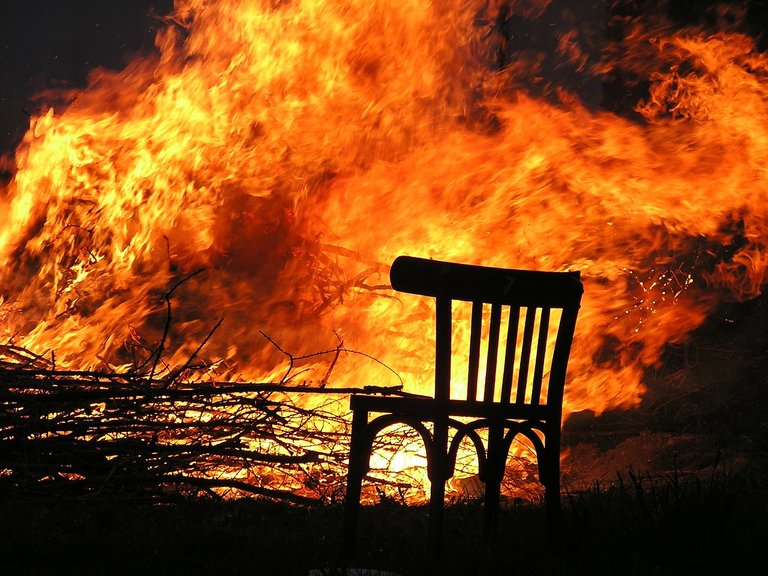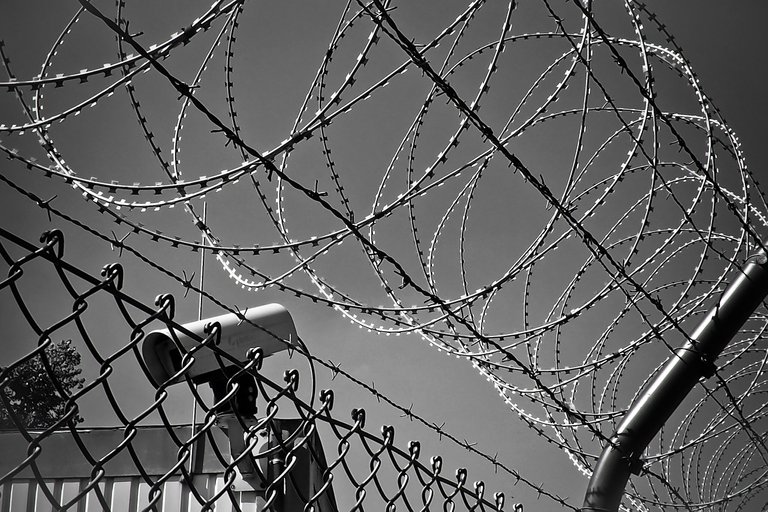I almost quit, I actually had a job lined up and everything. The one time in my first few years where I thought my career was done, it was very close. These are the continued trials and tribulations of my teaching career. This time the musical theme includes links. This is the sixth part of the story of how a military veteran, failed rock and roller, and single dad became a successful inner-city schoolteacher (It is marked 5.5 because there is a 6 already and I think it is good enough not to need a lot of modification). This will become a book in the near future and I hope Steemit will help me strengthen this and prepare it for my co-writer and editor. Please comment if there is something you think I can elaborate on more, or if you think I am missing the mark, or if you have a question.

Londons Burning
So as I was persevering at best, doing what I could to get material to my students. I was reading as many books as I could about teaching inner city students and was using every available resource at my disposal. I was reaching out to teachers at other schools, observing their teaching methods and trying to see what worked. I quickly figured out watching elementary school students was not teaching me a lot, so I was trying to get into middle school classrooms with topnotch teachers. That is when I realized that the students had to be from the same cultural group as mine. In fact, the dynamic missing in that case was the closed community I was trying to become a part of, it did not exist in any other school I went into. Really, all of this goes back to a couple things; Eastend was a large extended family that I was trying to have a role in and I needed to pay my dues. Those dues from the students’ perspective were the crucible I was experiencing. The problem was that the new administration had no clue what I was experiencing, they had never gone through it. Eastend was a unique place.

Complete Control
My students were unruly and I knew that any discipline referral I wrote would be ignored. I started talking to parents instead of relying on administrators to help me with behavioral issues after I found out that the AP was checking with students to see if I was telling the truth. I felt that if I was going to be treated as an outsider by the people that were supposed to help me, I would have to find another way. I had read several interviews with Jaime Escalante, and knew that he had worked hard to build relationships with parents, so that was the way I was going to go. Right before Christmas, the student who gave me the most trouble in class came in and handed me a present. He said “here,” and turned around and left. I was stunned. Over Christmas break I engaged in a lot of reflection. I needed to figure out what I was going to do and whether teaching was my calling. I returned to the classroom determined to see the year through.

Should I Stay Or Should I Go
In retrospect, after Christmas I believe I made strides in the classroom. At the time I felt confident that I was improving. Administrators did not come into my classroom and I was receiving a tremendous amount of criticism but I persevered. I did not have a standardized test that spring, so I could experiment and try new things. My mentor and department chair were very supportive of my efforts. I started to assign projects and allowed students to work in small groups. I put a noise metering stoplight in my class. If the noise level got too high, the light went off and students had to be silent for five minutes. That kept the “roar” down. The other positive was that by assigning students projects, I could walk around the classroom and keep order. That meant that the classroom was better behaved and discipline problems were not as prevalent. So the cycle of craziness was broken. I am sure looking back the teacher I became would not have been happy with my classroom management, but at the time I felt I had come a long way. During my later research I interviewed students who remembered those projects, so they must have left some kind of impression on them.
I received my employee evaluation in May and was placed on a plan of action; almost all of my evaluations were in the “Needs Improvement” category. I had not had a formal observation since October. That meant I was going to get fired. I was ready to move to another occupation, I felt teaching was not for me. While I truly loved my students and had a great appreciation for their parents, I was not prepared to deal with the other professionals in the educational world. Honestly, with my background in technology implementation and systems management, I could make more money in the computer industry. Two events changed my future and I believe they were an answer to prayers (and smaller paychecks).

Train In Vain
In late May the father of one of my students came by to see me in the afternoon. While we were discussing his son, the Principal walked into my room and asked the father to come to his office. The father agreed but said, “I would like to bring [him] with me.” I do not remember all the details of our conversation but I vividly remember the father saying that the teacher that had the greatest impact on his son was his “brother of the heart, [me].” I was stunned and looked at the Principal to see if there would be any reaction. There was not.
In June, with school almost over and with me still contemplating my future, I received a second affirmation that I should not give up on my vocation. When returning to my classroom after dropping off my students for lunch, I found an envelope on my desk. In it was a letter from the young man who gave me the Christmas gift. He explained to me how much I meant to him and told me he was thankful I was there for him. He knew I was struggling but he wanted to know if I would be back the following year. That afternoon I told him I was not done yet. On the last day of school, I paid the Director a visit and asked him if he wanted me back the following school year? He told me that he would be thrilled to have me back and I assured him I would see him in July. That was one of the hardest years of my life. I will never forget it and the humility I learned that year is something I will carry with me forever. I did a lot in the military and went through some hard times, but never have I ever felt so out of my depth. I learned my lessons and I learned them well. Teaching is an art form and a science. I know I must of joked about “those who can do, those who can’t teach,” boy did I ever have to eat those words. Teaching ain’t easy!
Peace, love, and rock and roll!
M.
Part 01 of the Series
Part 02 of the Series
Part 03 of the Series
Part 04 of the Series
Part 05 of the Series


If you like these entries or have any questions or want to offer encouragement please post a comment or hit the upvote button, while making money is not really my concern I would like to know that I am not shouting into an empty canyon.
If you want advice and help with formatting your posts for better exposure and readability, head on over to #steemprentice on Steemit.chat. There will always be someone (or four) to give you a hand and offer some friendly, constructive advice and help on anything including content, formatting, marketing and networking!
Hello! I am Mike K. I am an educator, lifelong student, military vet and wannabe musician. I have a love of history, economics, philosophy and motorcycles. I am quickly moving from minarchy to Christian anarchy philosophically and want people to stop meddling. My debut CD should be out soon!

Riding in Tennessee with my son on the Green Eyed Snake
A good, dramatic entry in your story series... :)
I know at this point you're still looking for "overall structure," but I'll just try to encourage you to prime your thinking about one thing as you move forward with your book project:
Before you "pull the chain" and actually publish your book, please have more than one set of eyes read it for typos and for details of grammar, sentence structure, and so forth. Why?
We live in a brave new world where almost anyone can self-publish a book. The Amazon Kindle is an amazing device, and there are writing structuring tools such as Scrivener that take a lot of the pain out of self-publishing. However, one of the unfortunate consequences of this has been an explosion of poor quality reading material on the market.
I personally believe it is hard to overcome the bad first impression made when a book contains rank amateur errors in spelling, word usage, or grammar that could have, should have, and would have been caught by the right collection of proof-readers.
In other words, measure twice; cut once. ;) Just my two cents along with my best wishes. :)
Thank you for your advice. I think I will need more than one set of eyes. I am finding with the publication of my dissertation that in spite of four people reading through it, there are errors.